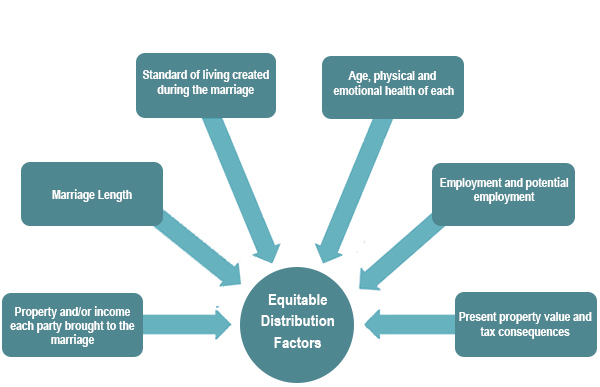Couples who are going through a divorce in New Jersey may have their marital property and assets divided using the equitable distribution model.
In addition to the many topics that must be negotiated during divorce proceedings, New Jersey couples must divide their marital estate, including shared property, assets and debt. While some couples can do so civilly through mediation or collaborative divorce, other people leave the decision in the hands of the New Jersey court of law to decide.
Equitable distribution of property
New Jersey follows an equitable distribution model when dividing marital property and assets. This model divides property fairly rather than equally, according to the American Bar Association.
Although the state has certain distribution of property legislation in place, the ultimate decision is up to the discretion of the judge who is appointed to the case. Each divorce case is unique, and the judge will take into consideration several factors before making a decision. According to New Jersey state legislation, these details include:
- How much property and/or income each party brought to the marriage
- Length of the marriage
- The standard of living created during the marriage
- The age of each party, as well as their physical and emotional health
- Each party’s current employment and potential employment measured by education, work experience, time needed for training and time spent away from the job market
- The present value of the property, and the tax consequences that either party may face if they acquire the assets
Not all property is marital
Any property than was owned prior to the marriage or obtained after a legal divorce is considered separate property. These items and assets are not eligible for distribution, but rather stay with the original owner, according to Forbes. While separate property can include items, such as furniture, vehicles and homes, it can also pertain to any inheritance or third-party gifts received during the course of the marriage. In some cases, separate property can lose its exclusive status if it is combined with marital property. For example, if a spouse receives an inheritance and places it in a joint banking account that is shared with their spouse, the money may become martial and thus eligible for division during a divorce.
Seeking legal assistance
Going through a divorce can be extremely stressful and overwhelming. At times it may be hard to make the important decisions that are critical to the outcome of your case. An established attorney in New Jersey may offer the legal assistance necessary to give you peace of mind during your divorce. Not only can a lawyer walk you through the legal process, they may be able to ensure that you receive everything that you’re entitled to in the divorce settlement.
For more information, or to talk about your divorce options with one of our licensed and experienced New Jersey matrimonial law attorneys, give our office a call at 973-710-4366.







